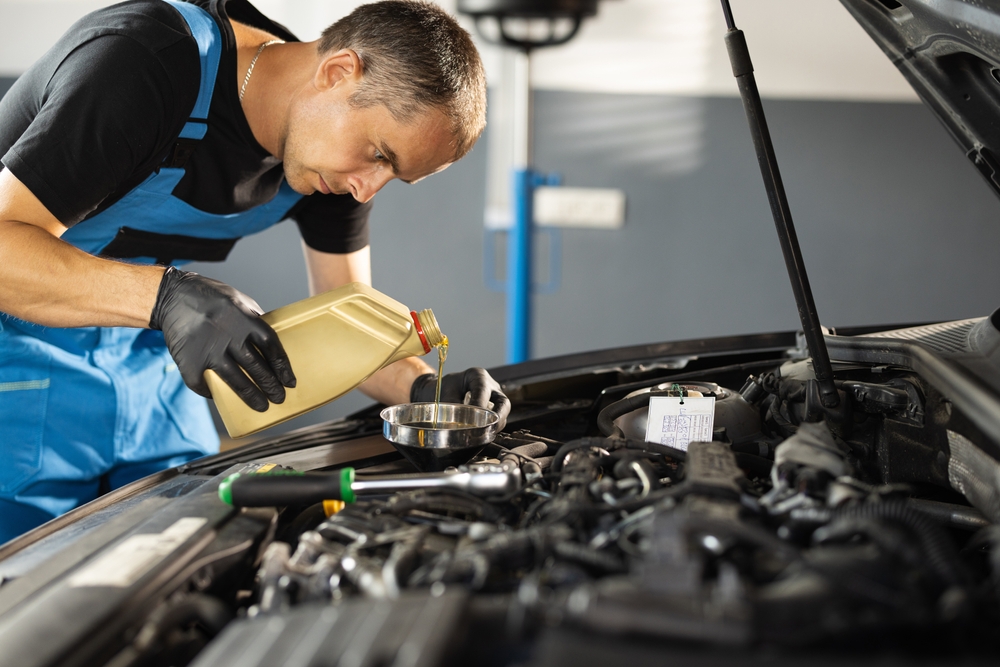
Keeping your vehicle running smoothly isn’t just about avoiding breakdowns; it’s about ensuring safety, reliability, and longevity. Regular maintenance is key to achieving this goal. Whether you’re a seasoned car owner or a novice, these essential car maintenance tips will help you keep your vehicle in top shape for years to come.
Key Takeaways:
- Regularly check your fluids, including oil, coolant, brake fluid, and windshield washer fluid.
- Inspect your tires for wear and tear, and ensure proper inflation to improve fuel efficiency and safety.
- Replace air filters regularly to maintain engine performance and fuel economy.
- Keep up with scheduled maintenance outlined in your owner’s manual to prevent costly repairs down the road.
- Address any warning lights or unusual noises promptly to avoid further damage.
Oil Change: Keeping Your Engine Healthy
Regular oil changes are crucial for keeping your engine running smoothly. Engine oil lubricates moving parts, reduces friction, and helps dissipate heat. Over time, oil breaks down and becomes less effective, leading to increased wear and potential engine damage. By sticking to a regular oil change schedule, typically every 5,000 to 7,500 miles, you can extend the life of your engine and ensure optimal performance.
Tire Maintenance: The Foundation of Safety
Your tires are the only point of contact between your car and the road, making them critical for safety and performance. Regularly check tire pressure and tread depth to ensure proper traction and handling. Underinflated tires can increase fuel consumption and cause uneven wear, while overinflated tires can compromise handling and ride comfort. Additionally, rotate your tires every 6,000 to 8,000 miles to promote even wear and maximize their lifespan.
Brake System: Stopping Power Matters
Your vehicle’s braking system is essential for safety, so it’s vital to keep it in top condition. Inspect brake pads and rotors regularly for signs of wear, such as squeaking or grinding noises. Replace brake pads as needed to prevent damage to other brake components and ensure optimal stopping power. Additionally, flush and replace brake fluid every two years to maintain proper hydraulic pressure and prevent brake failure.
Fluid Check: The Lifeblood of Your Vehicle
Fluids play a crucial role in the operation of your vehicle, from lubricating moving parts to cooling vital components. Regularly check fluid levels, including engine oil, coolant, brake fluid, and windshield washer fluid. Low fluid levels can lead to overheating, poor performance, or even mechanical failure. Keep your vehicle’s fluids topped up according to manufacturer recommendations to ensure smooth operation and prevent costly repairs.
Routine Inspections: Catching Problems Early
Regular inspections are essential for identifying potential issues before they escalate into costly repairs. Take the time to visually inspect your vehicle regularly, checking for leaks, unusual noises, or warning lights on the dashboard. Address any concerns promptly to avoid further damage and ensure continued reliability. Additionally, follow the maintenance schedule outlined in your owner’s manual, which includes tasks such as belt and hose inspections, spark plug replacements, and more.
FAQ Section:
Q1: How often should I replace my air filter? A1: It’s recommended to replace your air filter every 12,000 to 15,000 miles or as specified in your vehicle’s owner’s manual.
Q2: How can I improve my fuel economy? A2: You can improve fuel economy by maintaining proper tire pressure, keeping up with regular maintenance, avoiding aggressive driving, and minimizing idling.
Q3: Why is coolant important for my vehicle? A3: Coolant helps regulate engine temperature, preventing overheating in hot weather and freezing in cold weather. It also protects against corrosion and lubricates the water pump.
Q4: When should I replace my windshield wipers? A4: Replace your windshield wipers every six months to a year or as soon as you notice streaking, skipping, or other signs of wear.
Q5: How can I interpret warning lights on my dashboard? A5: Refer to your vehicle’s owner’s manual for specific information on dashboard warning lights. Ignoring warning lights can lead to serious damage or safety hazards.
Conclusion:
By following these essential car maintenance tips, you can ensure your vehicle runs smoothly, reliably, and safely for miles to come. Regular maintenance not only prolongs the life of your car but also enhances its performance and fuel efficiency. Don’t wait until something goes wrong—take proactive steps to care for your vehicle and enjoy worry-free driving. Remember, a well-maintained car is a happy car!

